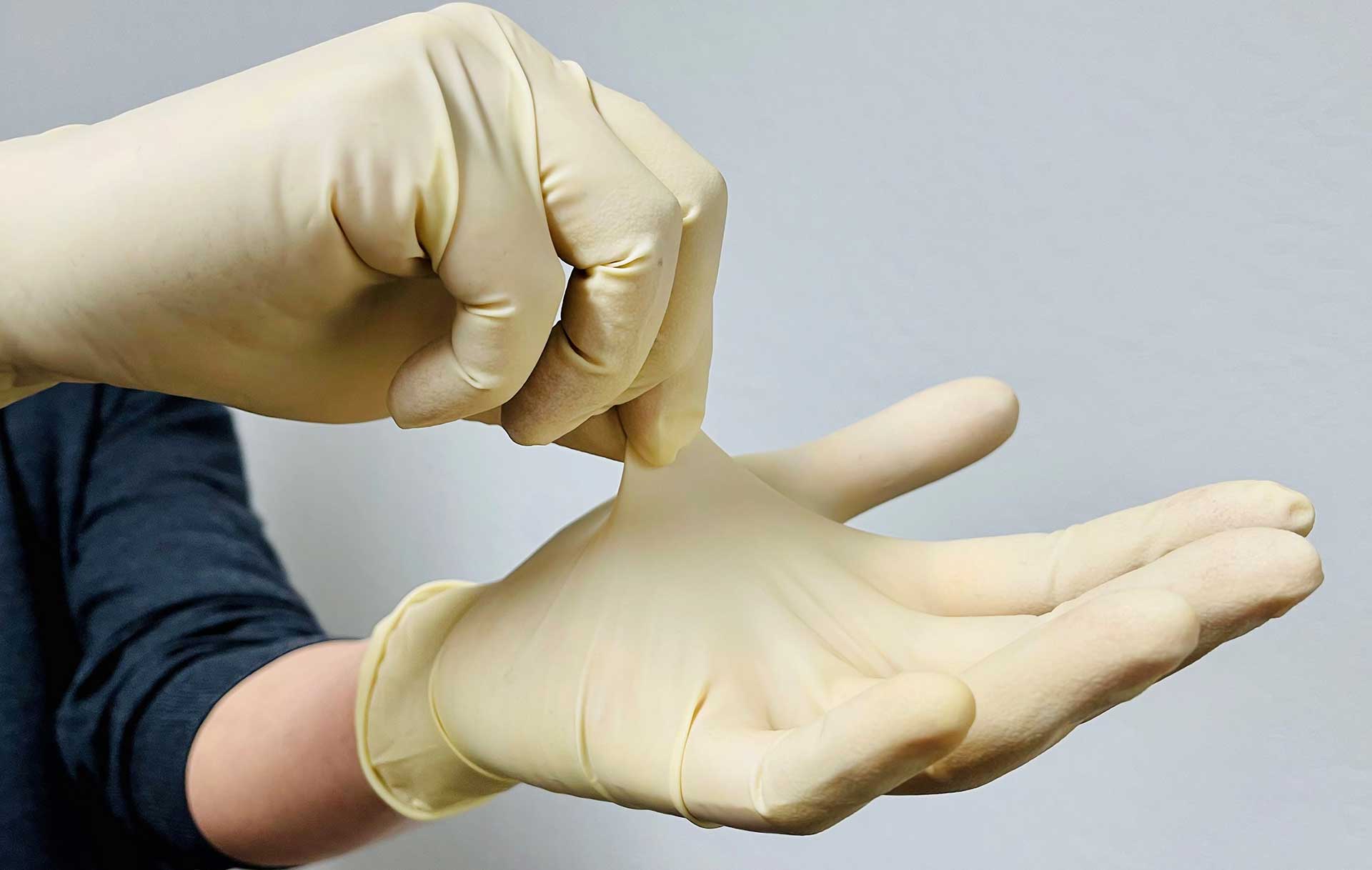Tuesday, January 11, 2022

Natural rubber latex is derived from rubber trees, mainly Hevea brasiliensis. The use of latex disposable gloves for protecting against biohazards like infections and chemicals is attributed to Dr. William Stewart Halsted, who was later called the father of modern surgery. In 1889 he requested some bespoke rubber gloves from the Goodyear Rubber Company for a scrub nurse who suffered from contact dermatitis and eczema due to the use of chemical antiseptics. The nurse was named Caroline Hampton, who later married Halsted.
Latex rubber is still a very popular choice for disposable gloves, despite the growth of alternate glove materials such as nitrile and vinyl. The biggest benefit of latex is its higher elasticity compared to its latex-free counterparts. This provides dual benefits of fitting snugly around the hand for good protection and a high degree of comfort and dexterity for the user, reducing hand fatigue. Indeed many users (and most of us at BMC Protect) consider latex gloves to be superior in terms of flexibility and comfort for long-term wear. Unlike synthetic materials, natural rubber latex gloves are biodegradable.
Another benefit of latex includes its chemical resistance, which provides good barrier protection against a diverse set of chemicals, although nitrile gloves have been shown to provide a slightly better overall chemical resistance profile. Chemical breakthrough times also depend on glove thickness, with thicker gloves having longer breakthrough times than thinner gloves. Click here for our chemical resistance guide for gloves.
If there was one main drawback of latex gloves it would be that a small percentage of the population is allergic to proteins in natural rubber latex. Latex sensitivities can also be acquired through frequent use of latex gloves. Healthcare providers and other frequent users of latex are at greater risk of developing latex allergies. Symptoms range from rash, hives, sneezing and difficulty breathing.
Because of the numerous advantages of latex gloves, they are suitable for a wide range of applications and industries, both medical and industrial. Of note is the rise in popularity in automotive repair, janitorial and sanitation, medical and dental, agricultural, and tattoo industries. Especially for people without latex allergies, the tactile sensitivity and manual dexterity make latex gloves a great option for any applications requiring a lot of touch and feedback to perform intricate or delicate tasks.
We have models of gloves in different thicknesses to various levels of protection.
GripProtect® Operon Latex Exam Gloves (6 mil)